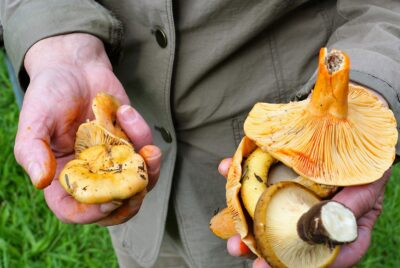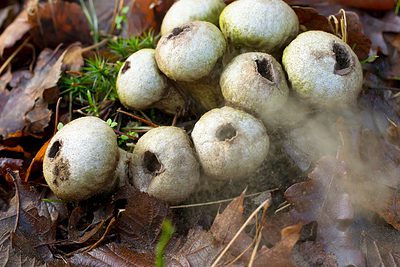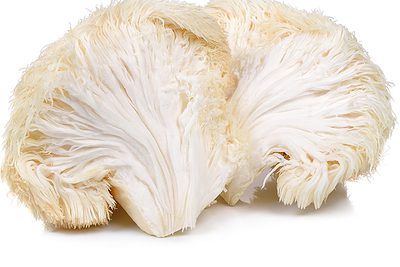At a time when we are all looking to maintain or improve health and boost our immune system to protect against deadly diseases, it’s exciting to learn that there are medicinal mushrooms for viruses that we can easily incorporate into our daily health routine.
If you like adding mushrooms to various recipes, you already know that they provide taste and texture. Perhaps you also know that they provide health benefits, since they add that flavor while being low in fat and cholesterol, and high in fiber and protein.
But the fact that mushrooms can actually help fight disease makes it even more important to add them to recipes, include them as supplements or brew them into tea. So while all non-poisonous mushrooms are worth consuming, some mushrooms that are considered “medicinal” display other health benefits in clinical studies.
In the case of viral diseases, they can’t be treated in the same way as bacterial infectious diseases. Research on the antiviral effects of mushrooms has been done on whole extracts of mushrooms and also on isolated compounds. There is evidence of direct antiviral effects as well as indirect antiviral effects. In this time of global pandemic, the more we can learn, the better.
Let’s explore the research behind 5 medicinal mushrooms for viruses and how to easily add them to a daily health routine.
1. Reishi Mushrooms
Also known as lingzhi, the Reishi mushroom (Ganoderma lucidum) has what’s known as triterpenes that have been shown in trials to be active as antiviral agents against human immunodeficiency virus type 1 (HIV-1). The Ganoderma strain also displays antiviral activity against influenza virus type A and is active against herpes simplex virus type 1.
Research is continuing on the use of organic Reishi mushroom powder in the treatment of viral and bacterial infections.
Reishi has long been used in Asian medicine for its other health benefits, as it supports the liver and gastric system, aids in blood health, and may be cancer fighting. There are also clinical trials studying whether Reishi enhances the immune system through its antioxidant properties, which improve resistance and may even help fight disease.
It’s easy to add Reishi to your diet as a supplement. Reishi mushroom powder is an excellent choice to add to your health routine, without having to eat whole mushrooms.
2. Shiitake Mushrooms
This is another mushroom that has been shown to have numerous health benefits. In the case of viruses, clinical studies have shown that the mycelia or vegetative part of Shiitake (Lentinula edodes) contain many bioactive compounds with diverse pharmacological activities. That includes antiviral properties but also immune-boosting and antitumor effects.
One such study showed that Shiitake directly inhibited influenza virus growth at the early phases of infection. By administering the mycelia to infected mice, it increased the survival rate, and this was attributed to the direct action of Lentinula edodes on the viral growth.
Shiitake also shows immune-boosting properties. In one study, a test group ate shiitake mushrooms for 4 weeks, with the conclusion that immunity was improved, including gut immunity.
It’s also easy to add these mushrooms to your diet, since they are easy to find and easy to cook. Simply fry them over medium heat until they’re golden brown. They’re delicious on their own, or add them to any recipe that calls for fried mushrooms.
3. Cordyceps Mushrooms
Cordyceps is a unique mushroom found on the larvae of caterpillars in Japan. It’s long been used in ancient Chinese medicine for many different treatments. But clinical studies indicate that Cordyceps may have anti-influenza effects.
For instance, one study on the specific strain Cordyceps militaris, a fungus that parasitizes insects, showed that it had an anti-influenza effect on mice, associated with stable body weight and reduced mortality. Another study found that an isolated compound (acidic polysaccharide) from the extract of Cordyceps militaris grown on germinated soybeans showed beneficial therapeutic effects on the influenza A virus infection, partly by supporting the immune system.
While these studies were on mice, they are positive in displaying the possible antiviral effects of Cordyceps. It also has antioxidant and cancer-fighting properties.
It’s also easy to add to your health routine as it’s best purchased as a Cordyceps supplement powder.
4. Turkey Tail Mushrooms
The turkey tail mushroom (Trametes versicolor) has also been tested in clinical trials, including human clinical trials. The polysaccharide Krestin (PSK), a component of turkey tail, is an approved drug paid for by national health care in Japan. Numerous studies have shown that it boosts the immune system, but also that it has antiviral effects.
You can best take advantage of turkey tail’s benefits by consuming them as a health food supplement, such as in powder, extract or capsule form. Turkey tail is often recommended to support other treatments for patients with chronic conditions, such as cancer, as well as viral illnesses such as hepatitis C.
5. Chaga Mushrooms
The Chaga mushroom (Inonotus obliquus) is a popular prescription in traditional medicine in Europe and Asia. It’s known as a health booster, providing general advantages such as its antioxidant properties.
But studies have also shown it to reduce inflammation in the nasopharynx (upper part of the throat) and to facilitate breathing, and it may help decrease the herpes simplex virus (HSV) infection. It has also displayed anti-HIV activities. Chaga is believed to be antibacterial and antiviral, so it may be helpful in preventing and recovering from cold and flu.
Although Chaga is edible, it is quite bitter so it’s not usually eaten whole. It’s better to ingest as a tea, made from the whole mushroom. Chaga has traditionally been grated into a fine powder and brewed as an herbal tea. It can also be ingested as a supplement or capsule.
Final Thoughts
While mushrooms are a healthy part of a diet at any time, the global pandemic has raised interest in fighting viruses. Adding medicinal mushrooms for viruses to your daily routine is more important now than ever.
Like This Article? Pin it on Pinterest

Sources:
https://www.ncbi.nlm.nih.gov/pmc/articles/PMC4684115/
https://www.ncbi.nlm.nih.gov/pmc/articles/PMC1193547/
https://www.ncbi.nlm.nih.gov/pmc/articles/PMC5992414/
https://en.wikipedia.org/wiki/Medicinal_fungi
https://pubmed.ncbi.nlm.nih.gov/25037880/
https://en.wikipedia.org/wiki/Cordyceps_militaris
https://pubs.acs.org/doi/10.1021/jf0721287
http://www.dl.begellhouse.com/journals/708ae68d64b17c52,1b1b20957ef5c8f4,210d57c00e88b78c.html
https://www.huffpost.com/entry/mushrooms-cancer_b_1560691
http://www.dl.begellhouse.com/journals/708ae68d64b17c52,30efbbbf6e2caad6,39c463f030b2eb80.html






